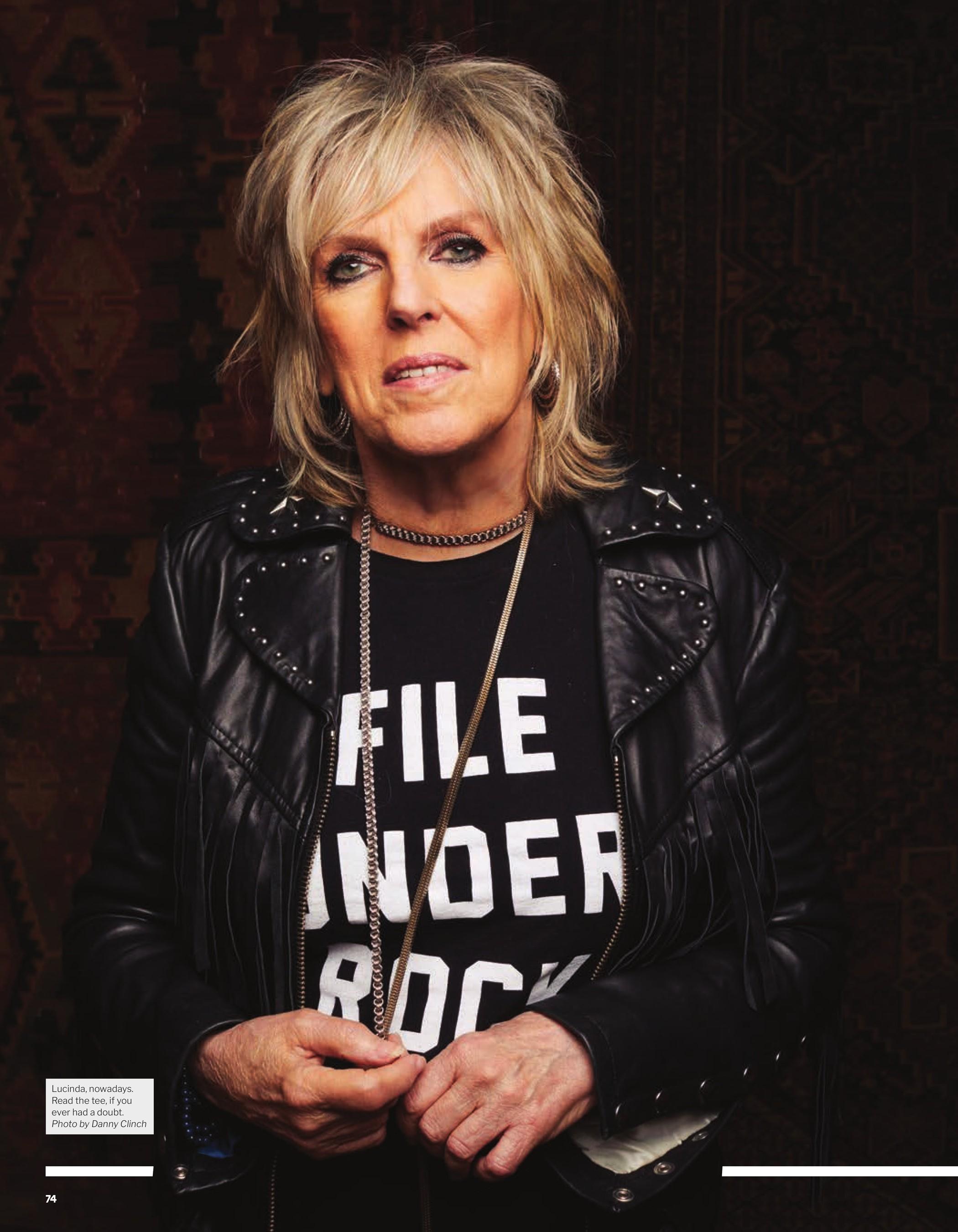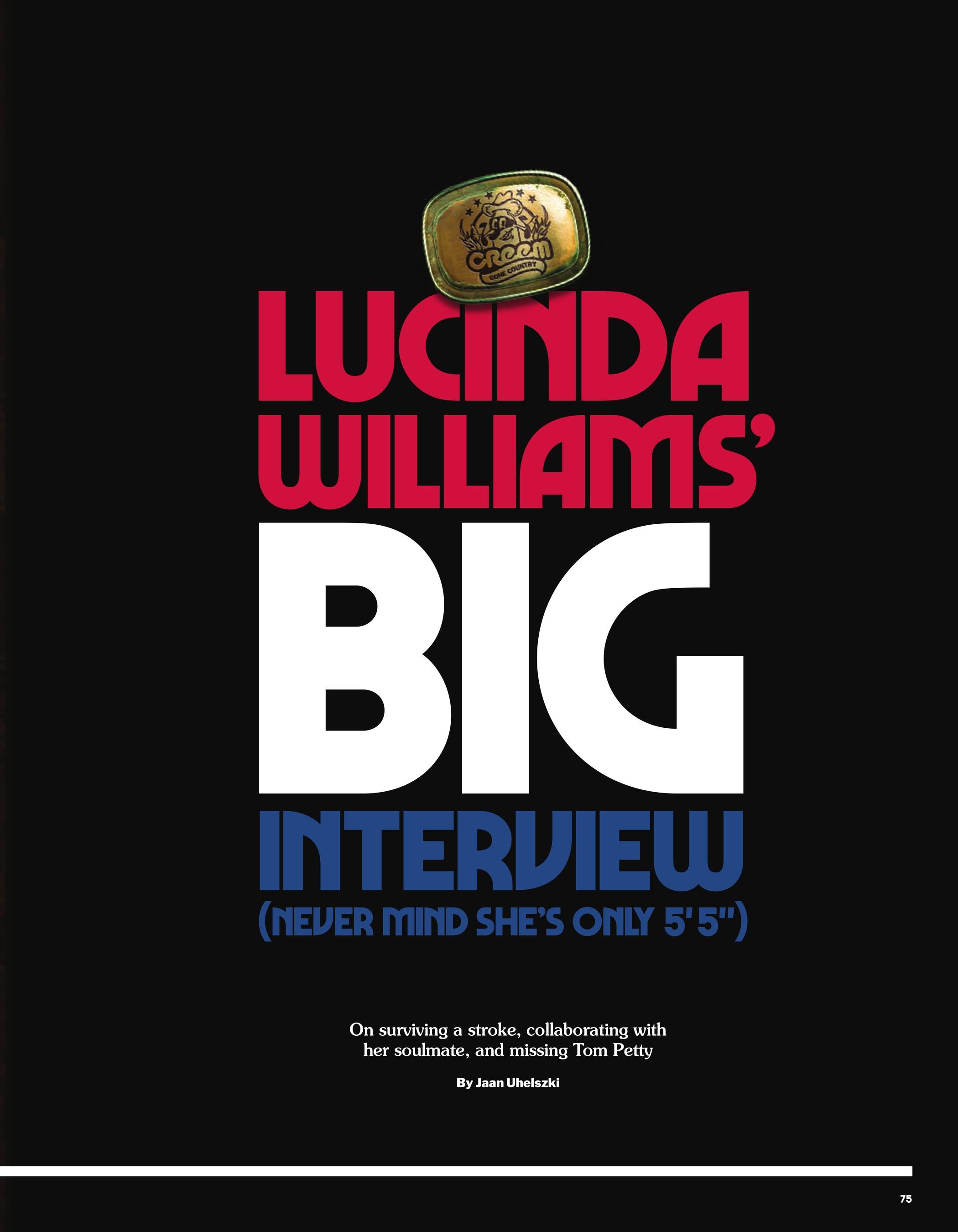The Big Interview
LUCINDA WILLIAMS’ BIG INTERVIEW (NEVER MIND SHE'S ONLY 5'5")
On surviving a stroke, collaborating with her soulmate, and missing Tom Petty
September 1, 2024


Loading...

On surviving a stroke, collaborating with her soulmate, and missing Tom Petty


Loading...